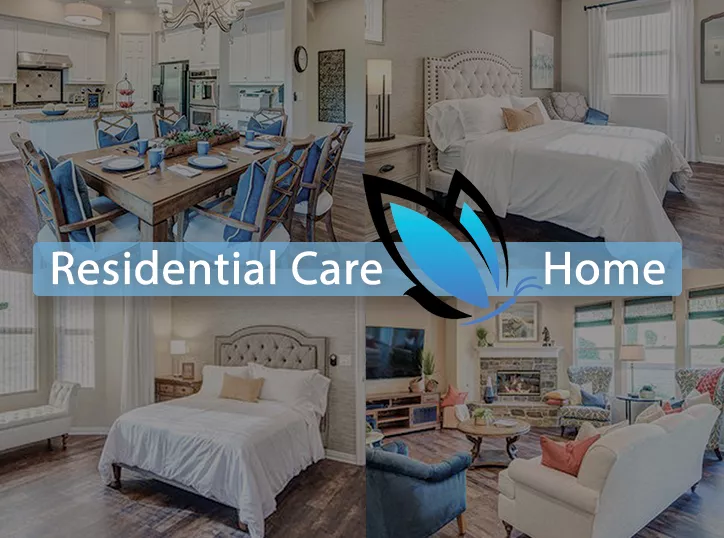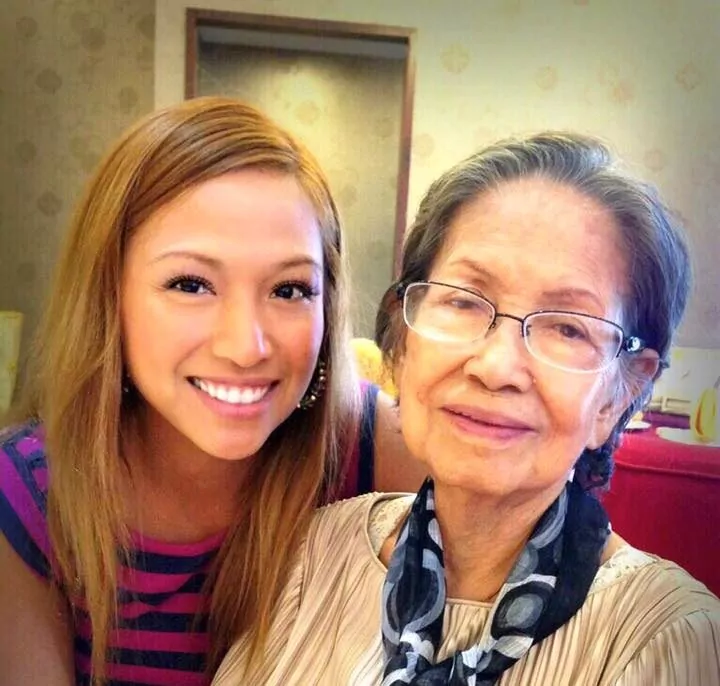Memory Care
Memory Care Facilities
What is Memory Care? Memory Care Facilities are Senior Living communities that specialize in caring for people who are diagnosed with Dementia and Alzheimer’s Disease. This type of facility provides safe and secured environment with structured activities to help care for people with memory issues.
Generally, memory care facilities are secured and locked to provide safety and protection to Alzheimer’s and Dementia patients who have the tendency to wander. Typically, all doors and windows have alarms to ensure that all the memory care residents are safely monitored for their safety.
Caregivers and staff members are well-trained to provide supervision and assistance with Activities of Daily Living such as eating, bathing, toileting, dressing, grooming and minor house chores. All the employees are equipped to handle different types of issues and situations due to Dementia or the Alzheimer’s Disease. Daily structured activities are provided for stimulation to help improve cognitive function and help lessen the stress of residents in Memory Care communities.
Memory care communities usually have nurses and doctors either on site or on call. Memory care in the 50 US states have caregivers 24 x 7 to ensure the protection and safety of all the residents in Memory Care Facilities.
Discussed Topics
- Who are Memory Care Facilities For?
- Types of Care Facilities
- Differences Between Care
- Services Provided
- Paying for Care
- Touring Checklist
- Regulation and Licensing
- Find & Choose the Care Home
Who are Memory Care Facilities For?
Memory Care supports the physical and psychosocial needs of the elderly and other individuals with Alzheimer’s disease or related dementia. These services are provided in a Alzheimer’s Care Facility which can also be in a secure, locked wing for the safety of those who have the tendency to wander.
Memory Care Facilities are specifically designed to treat and provide special care to seniors who are suffering from Alzheimer’s Disease and Dementia. These Facilities provide assistance with activities of daily living like help with eating, bathing, toiletry, grooming, dressing-up and minor chores. These Communities or Homes can be very similar to Assisted Living Facilities in terms of services and amenities, but are secured to prevent residents from wandering.
The overall objective of Memory Care facilities is to provide care for seniors with Alzheimer’s disease by keeping the participants as healthy and active as possible. Social services and programs are tailored to provide seniors with Alzheimer’s disease and other Dementias with as much mental and memory stimulation as possible.
Types of Memory Care Facilities
A) Large Communities – “Resort-Style Living”
In a large Memory Care community, there can be anywhere from 30 to 200 residents and a typically a 1:6 to 1:12 caregiver-to-resident ratio. Large communities also provide a high level of socialization among their residents, frequent activities throughout the day, pet and music therapy, daily prepared meals, transportation to mass service or doctor appointments, and assistance with bathing, dressing, walking and medication management.
Some of these Memory Care facilities also have secure, locked-down memory wings for residents that are suffering from Alzheimer’s disease and have tendencies to wander.
Top Memory Care Communities
- Brookdale Senior Living
- Sunrise Senior Living
- Atria Senior Living
- Pacifica Senior Living
- Enlivant Senior Living
- Senior Lifestyle
- SRG Senior Living
- Merrill Gardens Senior Living
- Belmont Village Senior Living
- Holiday Retirement
- Aegis Living
- MBK Senior Living
- Meridian Senior Living
- Oakmont Senior Living
- Carlton Senior Living
B) Residential Memory Care Home – “Just like Home”
Typically, Memory Care Residents suffering from Alzheimer’s Disease that have a tendency to wander will require a secure Memory Care Wing. These Wings are usually located on the property of a large community, but sectioned off to help Memory Loss Residents from getting lost. There can be anywhere from 30 to 75 residents suffering from Alzheimer’s and a typically a 1:6 to 1:12 caregiver-to-resident ratio.
How Memory Care is Different than other Care
How Do Memory Care Facilities Differ From Independent Living and Assisted Living?
Memory Care Facilities provide special care to those suffering from Alzheimer’s Disease and Dementia. These special services include structured Care Programs such as crossword puzzles, Sudoku and other board games to help stimulate the brain. Caregivers will undergo special and extensive training to ensure the proper care is given to their residents.
Independent Living is a non medical facility for active, healthy and alert seniors who want a “resort-style” living without having to worry about household chores and maintenance. Older adults living here want the socialization with other residents and frequent activities and entertainment.
Assisted Living Facilities are a non medical facility for active and alert seniors who want to maintain independence for as long as possible but may need help with one of the activities of daily living (ADL). These activities of daily living include assistance eating, bathing, showering, dressing, getting out of bed and more.
How Do these Memory Care Facilities Differ From a Nursing Homes?
Nursing Homes are for seniors who require nursing assistance 24 hours a day, 7 days a week due to the higher level of Memory Care needed.
How Do Memory Care Facilities Differ From In-Home Care?
In-Home Care is different than care given at Memory Care Facilities. In-Home Care is performed by a caregiver in the comfort of the individual’s own home or even at a family-member or friend’s home. In-Home Caregivers can stay 24-7 in the home or perform help and care during hours specified by the individual or family. This is usually one-on-one care with the caregiver directly helping and giving full attention to the individual. Since in-home care is one-on-one in the convenience of the individual’s home, it is also typically more expensive.
The difference with Memory Care is that care is performed in a facility that does not belong to the individual or family. Residents have moved away from their home and into either an Large Community or Residential Care Home. This is also known as a board and care home, residential care home, or elderly care home. Help and Care at a Facility is performed by Caregivers employed or hired by the Facility owner.
Usually in a residential care home, there are usually 2 caregivers in the home taking care of 6 residents. In larger communities, there are more caregivers present in order to help all the residents which can span up to 200 or more residents.
View Memory Care Facilities in Your Area Today
Types of Services Provided
Structured programs and activities are available to meet the needs of people with this memory loss disease. Crossword puzzles, Sudoku, chess and several other board games are usually available in Alzheimer’s care centers as it helps stimulate the brain.
Memory Care Facilities provide 24-hour caregiving support and higher level of security to protect those residents that have the tendency to wander. Caregivers and staff members in these facilities undergo extensive senior care training on how to care for Alzheimer’s and Dementia patients. This ensures that proper quality of care is given to all senior residents with the disease and other forms of Dementia.
Memory Care Facilities serve three healthy and balanced, home-cooked meals to all of their senior residents. Special diet accommodations may also be available upon request. Most Care Facilities provide a high level of socialization among their residents, frequent activities throughout the day, mental stimulation games, pet and music therapy, laundry, hairdressing, medication assistance, transportation to mass service or doctor appointments, and assistance with bathing, dressing, walking and medication management.
General Care Services
- Three complete meals a day including snack and drinks.
- Housekeeping and Laundry Services
- 24-hour Emergency Call Systems for each room
- Assistance with Activities of Daily Living for Seniors like eating, toileting, bathing, dressing up and walking, if needed.
- Transportation to Medical Appointments
- Exercise and Wellness programs to help keep seniors physically and mentally active.
Daily Meals, Housekeeping, and Laundry Services
The food service is an important factor for seniors. Memory Care facilities offer a wide range of healthy and nutritious menu selection. Three complete balanced meals are provided daily as well as snacks and drinks throughout the day. Special diet accommodations may be available upon request.
Usually, Residential Care Homes offer a casual family dinning style, while Large Communities may offer a wider range, from casual dinning to fine dinning. Housekeeping and laundry services are available as well.
Activities and Programs
A variety of activities and programs are available in Memory Care facilities to entertain seniors and enhance quality of life. Activities such as daily exercise, gardening and board games help keep seniors mentally and physically active for a healthy lifestyle.
The following additional activities and programs may be available to meet seniors’ needs and interests:
- Book Clubs
- Scheduled Outings (trip to the movies, theme parks, concerts, etc)
- Shopping Assistance
- Religious Activities
- Barber and Beautician services
- Shopping Assistance
- Money Management/Banking Services
- Computer and Internet Services
Health-Related Services
Basic medical services are usually provided in these Care facilities such as:
- Medication Management
- Maintaining Medical Records
- Monthly Wellness Check-up
The following health-related services may be available to seniors as well:
- 24-Hour Nurse Assistance
- Oxygen Therapy
- Physical Therapy
- Radiation Therapy
- Speech Therapy
- Memory Care for Alzheimer’s and Dementia patients
These health-related services may be performed in the Residential Care Home or Large community, but could be provided by an outside third party.
The Cost of Memory Care Facilities
On a national average, costs for Care can start as low as $5,000 per month to as high as $15,000 per month. The national average for Memory Care is $7,000 which will depend on a variety of factors.
This will include the care needs of your loved one, if they will need a secured memory wing or if they can remain safe in a small care home, desired services and amenities, private or shared bedroom and bathroom, location of the care facility, years the facility has been in business, staff experience specializing in residents with Alzheimer’s Disease, as well as other services.
The monthly fee for this type of care may vary depending on the location, level of care needs and size of the facility or community. Memory Care and Rent can be very expensive and that’s why it is important to plan and prepare for your aging loved ones future.
Paying for Care
Memory Care is typically paid out of pocket (private pay). This can be expensive for most families, so planning ahead is crucial to ensure a smooth transition into the facility.
Factors that Influence Memory Care Costs
1) Location, Location, Location
Just like real estate prices, location always influences the cost of labor, property value, services, etc. If you need to save on costs and are working with a budget, you might want to consider areas a little further out from your desired location. A Senior Care Advisor should be knowledgable with costs in a specific area and can give you a variety of options based on budget requirements.
2) Care Needs
Just like anything in life, the higher the care needs, the more expensive it gets. If certain residents require special attention from highly trained professional staff, the costs are usually higher. Again, being able to compare a few communities and having options is ideal as one facility may charge a little less for the same provided care. A Senior Care advisor can make the search much easier and give you free options to compare.
Large Communities usually charge based on different levels of care while Small, Residential Care Homes typically have an all-inclusive rate. These are factors that families will want to consider when looking for Senior Living.
3) Amenities
While the cost of Amenities will vary by community, it is wise to ask what’s included so you can determine what is essential and what is not really required. Facilities with more amenities and memory-care specialized services will typically have higher care costs.
For more information on What Influences Costs in Facilities, click here
Options on Paying for Memory Care
1) Long Term Care Insurance
Typically, seniors and families use private funds to pay for care. However, some facilities accept long-term care insurance. Check your senior loved one’s long-term care insurance policy to see if this type of care is covered.
2) Veteran’s Aid and Attendance
This special pension is called VA Aid and Attendance Pension Program. If the senior is a war veteran and/or a spouse of war veteran, he or she might be able to get pension from the Veterans Administration to help pay for care. In order to be eligible for the VA Aid and Attendance Program, the Veteran or spouse will need help with at least two Activities of Daily Living.
To qualify for the VA Aid and Assistance program, a Veteran must:
- Have served in the Armed Forces on active duty for at least 90 days
- Have served at least one day of active duty during time of war
- Have received an honorable discharge
- Require assistance with activities of daily living (ADLs) such as bathing, eating, dressing and walking (or the qualifying Veteran’s spouse must require such assistance)
For more information on the VA Aid and Attendance Program, click Here. You can also read VA Aid and Attendance to learn more or contact your local VA regional office at 1-800-827-1000.
3) Medicare
Medicare covers some parts of dementia care. Some examples include inpatient stays at a skilled nursing facility, home health care, and medically necessary diagnostic tests. Additionally, people with dementia may be eligible for specific Medicare plans that are tailored to their specific needs.
4) Medicaid
Generally, Medicaid does not pay for Memory Care Facilities but in some states, Medicaid may pay for a limited stay in the facility. Keep in mind though that you will have to qualify since Medicaid has very strict guidelines. Contact your local Medicaid office to learn more about your state’s Medicaid program. You can also contact Medicaid directly at Medicaid.Gov or 877-267-2323.
Touring Checklist
So you’re set and ready to tour a care facility? The biggest mistake we see families make is not having enough options to compare. We highly recommend touring at least 2-3 facilities so that you can choose the right home for your loved one. When touring, it is important to ask the right questions and spot any red flags.
Some Important Questions to Ask:
- Does the facility offer services and amenities that cater to my needs?
- Is the facility located nearby for family & loved ones to visit?
- Is the facility located in a safe neighborhood?
- Is the facility within my budget?
- Is the entire facility accessible to walkers and wheelchairs?
- Are there grab bars & non-skid floors in the bathrooms?
- Is there a door alarm system if a resident wanders?
- Are call buttons located throughout the facility?
- Is there a readily-available doctor or nurse, or a nearby hospital in case of health emergencies or accidents?
- Do they offer nutritionally-balanced meals 7 days/week?
- Can the facility accommodate special diets/meal requests?
- Does the facility offer organized activities? Does it follow a daily schedule of activities?
- Are there exercise or health programs available?
- Does the facility offer transport services if seniors need to go to the bank, church, grocery, etc.?
- Does the facility provide families updates regarding the resident’s status and condition regularly or if necessary?
- Does the facility offer arrangements for delivery of prescriptions or other medical supplies, if necessary?
- Are there enough staff/caregivers? Are they readily available 24/7 to assist seniors if necessary?
- Does the facility do a background check of their staff?
Who Regulates these Care Facilities?
Memory Care facilities are regulated by the Department of Social Services and inspected by state officials. Every state has its own policies and guidelines. If the quality standards are not met, the state will not issue a license to the facility or for existing care facilities, the license will be revoked. This helps ensure the quality of senior care services in all Memory Care facilities.
How to Choose & Find the Right Memory Care Facilities
Where Can I Find an Memory Care Facility?
SeniorCareHomes.com provides Free Memory Care options to help seniors and families find the best-matched facilities based on budget, location and care needs. The process for finding the right care home or community can be overwhelming and daunting. SeniorCareHomes.Com helps make the journey much easier for all of the families we’ve helped since 2007.
Contact one of our Senior Care Experts now to get started for free advice and options at (877) 523-6523 x1 for Memory Care Options or click here
Start Your Search for Memory Care Facilities Today
TOP MEMORY CARE CITIES
CALIFORNIA
Anaheim Carlsbad Concord Costa Mesa Chula Vista El Cajon Elk Grove Escondido Fremont Fresno Huntington Beach Irvine Laguna Hills Laguna Niguel Livermore Long Beach Los Angeles Mission Viejo Palm Desert Pleasanton Riverside Sacramento Santa Barbara San Clemente San Diego San Francisco San Jose Santa Maria Santa Rosa Sunnyvale Torrance Walnut Creek Whittier
FLORIDA
Boca Raton Bradenton Cape Coral Daytona Beach Jacksonville Lakeland Miami Melbourne Ocala Orlando Palm Bay Palm Coast Pensacola Port Saint Lucie Saint Petersburg Sarasota Tallahassee Tampa West Palm Beach
TEXAS
Arlington Austin Corpus Christi Dallas El Paso Forth Worth Houston San Antonio
MORE TOP MEMORY CARE CITIES
Atlanta, GA Albuquerque, NM Atlanta, GA Baltimore, MD Brooklyn, NY Charlotte, NC Chicago, IL Denver, CO New York, NY Philadelphia, PA Phoenix, AZ Pittsburgh, PA Portland, OR Rochester, NY Seattle, WA Richmond, VA
Copyright © 2023 Senior Care Homes. All Rights Reserved.
Catharine “Kate” is a Certified Administrator for Residential Care Facilities for the Elderly (RCFE) and an Expert Senior Care Advisor. Kate’s grandmother battled Alzheimer’s Disease and Kate personally understands what millions of families are going through. Kate and her team are very passionate in empowering Seniors and their families by providing them with the Best Available Senior Care Options based on Senior’s care needs, preferred location and family’s budget.
City Data Sources: AreaVibes.com, Weather.Com
Essential Guides on Memory Recommended by Our Care Experts
What You Need To Know Before Making a Decision For Your Loved One









